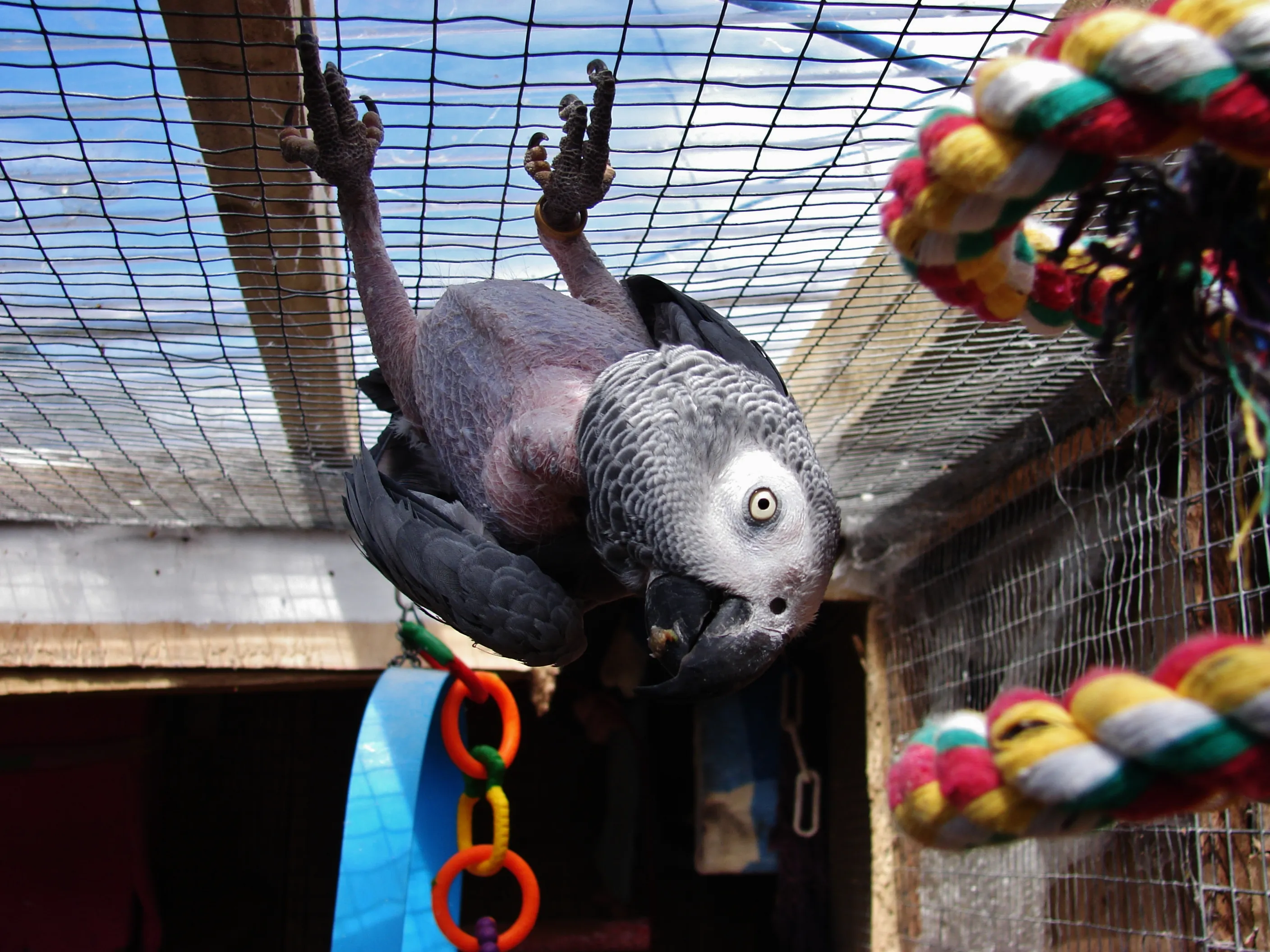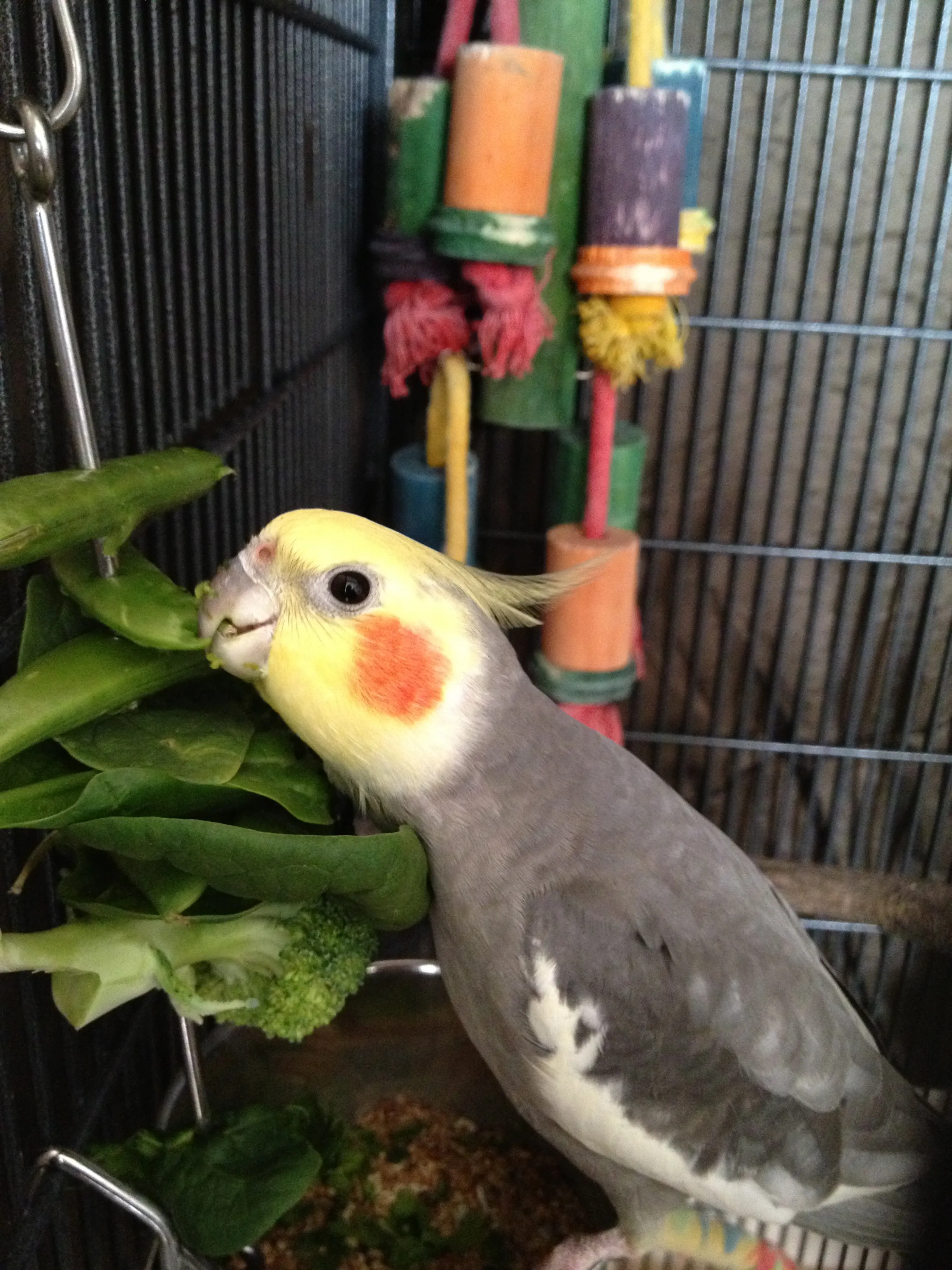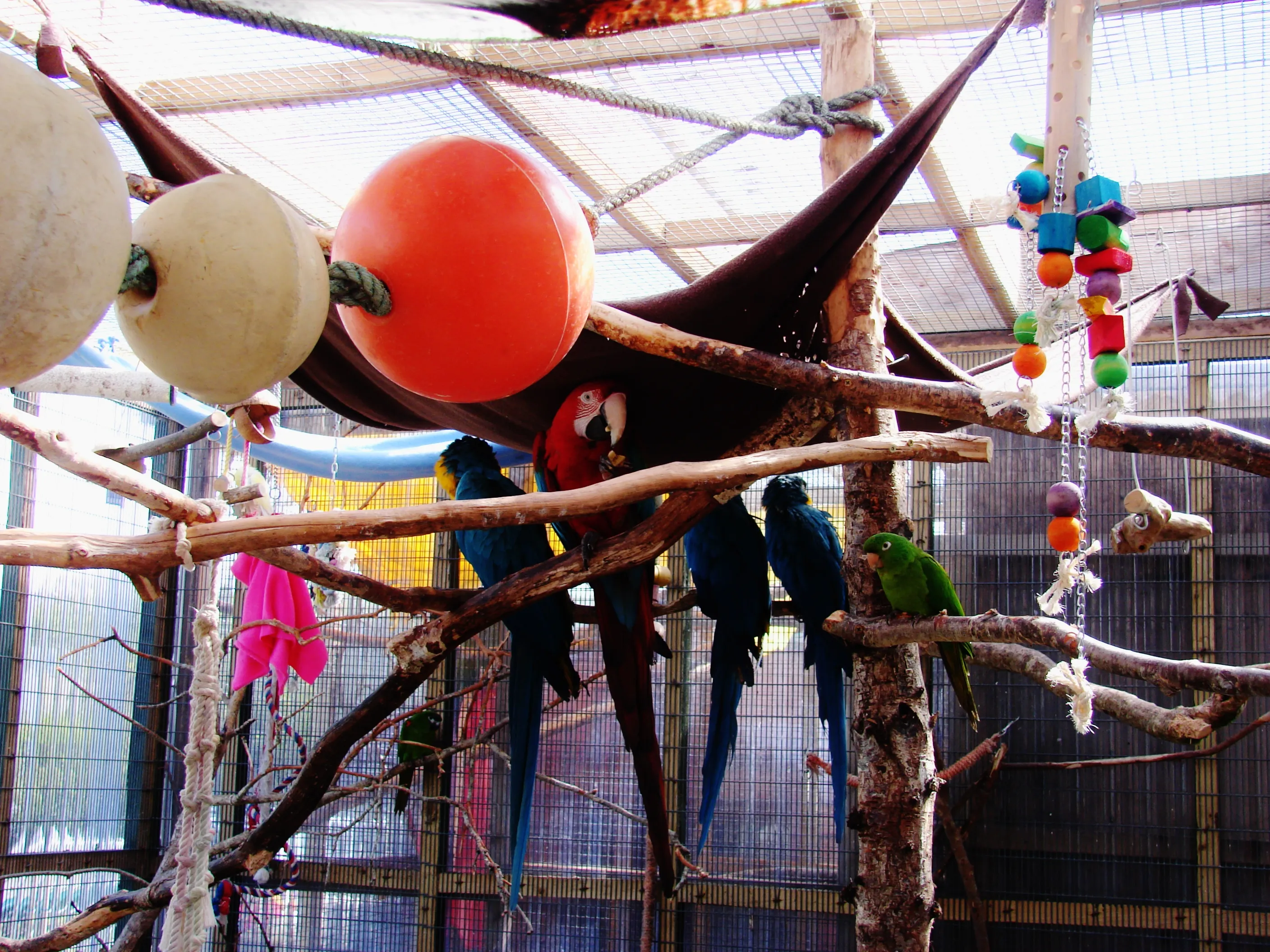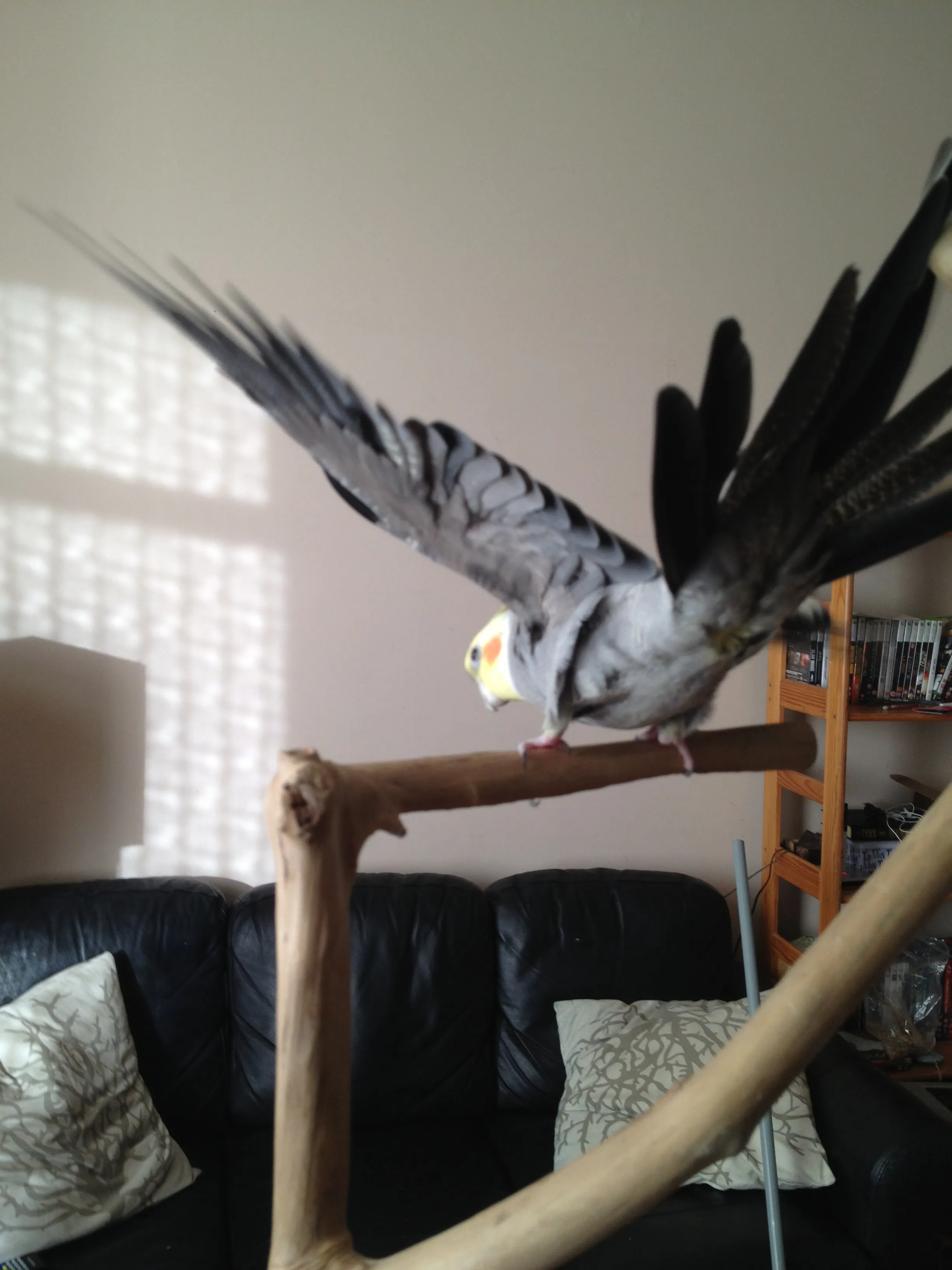Bringing a parrot home from a pet shop might seem like a dream at first glance, with their vibrant feathers and curious eyes drawing you in. But as someone who’s cared for multiple birds, including a cockatiel from a pet shop and several hand-raised parrots, I can tell you that pet shops often aren’t the ideal source for these intelligent companions. Parrots from pet shops face unique challenges that can affect their health, behavior, and long-term happiness. In this article, we’ll explore why opting for reputable breeders, rescues, or sanctuaries is often a better choice for healthy bird diet.
Each parrot has a distinct personality shaped profoundly by its early life. Take our neurotic yet lovable cockatiel Mishka, who endlessly repeats the first six notes of Jingle Bells; cheerful Pip the canary who devours anything edible; fierce parrotlet Ptak who chews fingers but has tender moments; cuddly Mavi with his car alarm obsession and defensive streak; or poor umbrella cockatoo Bobo with his troubled past. Beyond quirks, it’s their adaptability, confidence, and ability to thrive that truly differ—and it all traces back to their origins.
 Congo African Grey parrot playing on the aviary roof at Island Parrot Sanctuary
Congo African Grey parrot playing on the aviary roof at Island Parrot Sanctuary
The Hidden Health Risks of Pet Shop Parrots
One major concern with parrots from pet shops is the heightened risk of diseases. Even in well-run shops, birds typically come from breeders who offload weaker individuals unsuitable for breeding. These parrots may arrive already compromised. Our cockatiel Charlie, purchased alongside Pip, arrived in rough shape. Despite immediate vet care, we lost him—a heartbreaking lesson. Pet shop environments, with high traffic and shared airspaces, amplify disease transmission like psittacosis or Pacheco’s disease.
Veterinarians emphasize quarantine and testing for new birds, but pet shop stock often skips rigorous health checks. According to avian experts, early stressors weaken immune systems, making parrots prone to chronic issues. Choosing wild harvest cockatiel blends or similar quality foods can support health post-adoption, but prevention starts upstream.
Lack of Education for Buyers Leads to Problems
Pet shop staff prioritize sales over comprehensive advice, rarely delving into the demands of parrot ownership. These are highly intelligent, social animals needing 10-12 hours of sleep, mental stimulation, and a varied best diet for indian ringneck or species-specific nutrition. Without guidance, owners face screaming, feather-plucking, or aggression—signs of unmet needs.
In my experience, unprepared buyers relinquish birds to rescues, perpetuating a cycle. A study from avian rescues notes that impulse buys contribute to high surrender rates. Ethical sellers educate on lifelong commitment, cage sizes (minimum 24x24x36 inches for small parrots), and toys for enrichment.
 Relaxed cockatiel Mishka surrounded by toys after months of training and trust-building
Relaxed cockatiel Mishka surrounded by toys after months of training and trust-building
Stressful Environments and Poor Handling
Pet shops bombard parrots with stressors: blaring music, relentless lighting, suboptimal diets, sudden faces, cramped cages, and spotty hygiene. Abrupt separation from flock mates upon sale adds trauma. Parrots, with their long memories, carry this fear forward.
Our pet shop cockatiel Mishka exemplifies this. She’s independent but unstable—melting down at fingers, zooming ceilings in shrieks, wary of people and toys. It took six months to build basic trust; even now, progress is fragile. Hand-raised birds like our parrotlet Ptak or Senegal Maverick adapt faster, bonding readily without deep-seated fears.
Compare this to sanctuary birds, like the Congo African Grey thriving in natural aviaries. Mishka’s wild streak persists, requiring patient training. While she avoids sexual bonding issues common in hand-raised males (unlike Maverick’s mate-guarding), the behavioral baggage outweighs perks.
Statistics Paint a Grim Picture
Captive parrots face dire odds: 75% in the U.S. live in subpar conditions, changing homes 5-10 times in seven years (Feathered Friend Rescue). Pet shop impulse buys fuel this, as staff gloss over realities like 50-80 year lifespans.
 Parrots in a sanctuary environment, highlighting safe forever homes versus risky pet shop fates
Parrots in a sanctuary environment, highlighting safe forever homes versus risky pet shop fates
Stricter regulations could help: mandatory vet checks, ethical breeders, enriched holding areas, and buyer education. Support shops doing this right, and explore rescues for rare exotic birds or eclectus parrot food recommendations.
A Better Path Forward for Parrot Lovers
Pet shop parrots wage an extra uphill battle for happiness. Don’t “rescue” by buying—your purchase sustains the cycle. Instead, report issues, advocate for bans on bird sales, and adopt from reputable sources. Support ethical breeders and educate friends.
Mishka enriches our lives despite challenges, but her story underscores caution. Research thoroughly, prioritize hand-raised or rescue birds, and commit fully. What are your thoughts on pet shops selling parrots? Share experiences below!
References
- Feathered Friend Rescue: The Displaced Parrot
- Avian Welfare Coalition: Guidelines on parrot care and sourcing.
- Personal experiences from multi-year bird guardianship.
 Curious cockatiel observing from its perch, symbolizing the trust-building journey
Curious cockatiel observing from its perch, symbolizing the trust-building journey
